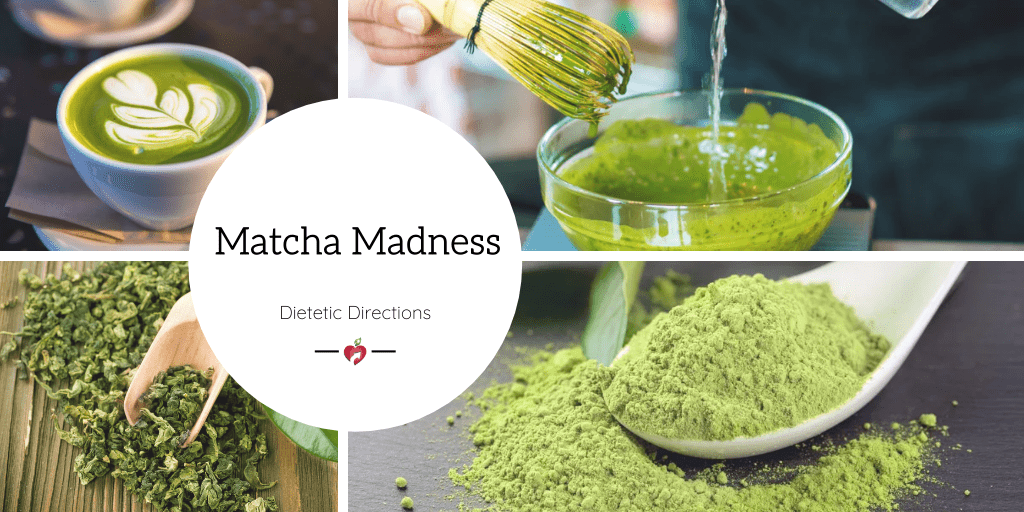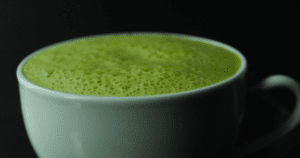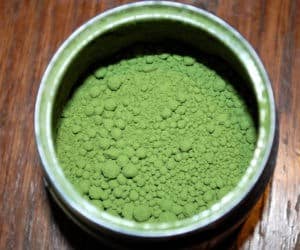
Matcha Madness
Move over regular old green tea, there is a new and more potent green tea in town! Matcha is a fine green tea powder, which has origins dating back to the 12th century in Japan. This tea is described as having a strong and earthy taste with a full and frothy texture. The difference between regular green tea and matcha tea lies in the processing. Matcha tea uses the whole tealeaf for harvesting, steaming, drying and grinding into a fine powder. Interestingly, ten cups of green tea are needed to match the potency of a cup of matcha green tea.
Ten cups of green tea are needed to match the potency of a cup of matcha green tea. Share on XHow to Make Matcha Green Tea?
The traditional process for making matcha green tea involves placing 1 teaspoon of matcha powder into a bowl. Please note that for the first couple weeks of using matcha powder, it is recommended to start with 1/4 – ½ teaspoon to give your body time to adjust. The matcha powder is forced through a sieveto break up any clumps. Then add hot water (70 degrees Celsius or boil water and let cool for 10 minutes) before adding to the powder. Using a bamboo whisk, whisk quickly until light foam develops (about 1 minute). Pour into a cup, add more water if you wish, and enjoy!
Health Benefits of Matcha Tea:
- Associated with decreased risk of cancer due to the high antioxidant content (specifically catechins), which prevent and repair damage to body cells.
- May help to reduce stress and boost mood due to serotonin contained in green tea as well as the amino acid L-Theanine that has a calming effect.
- May help lower LDL (bad) cholesterol because high concentrations of catechins disrupt the absorption of cholesterol from the intestinal tract
- May boost immunity due to high antioxidant content
- Energy booster attributed partly to the higher caffeine content when the whole tealeaves are crushed.One cup of matcha has 68mg of caffeine versus 32mg caffeine in a cup of steeped green tea. This may not sound like much but matcha green tea has about half the caffeine in one cup of black coffee.
- Research has found regular matcha consumption over a 16 week trial period, showed significant improvements or protection for liver and kidney functioning among type II diabetic rats. This early research has its limitations but shows promise and sparks interest for future research. (Journal of Medicinal Foods, 2009).
Don’t Like Matcha as a Tea?
- Put a teaspoon of matcha powder in your smoothie
- Stir the matcha powder and water into foamed milk for a matcha green tea latté
- Add less water and take it as a quick matcha shot (For those of you who aren’t a fan of the taste but love the benefits!)
Bottom Line:
Antioxidants such as polyphenols and catechins are associated with health benefits. Matcha green tea is a powerful source of antioxidants and can be a good addition to your healthy diet. However, it is crucial to look at your whole diet and take a look into your wallet when deciding if it is right for you. If you are budgeting for matcha tea powder, one 80-gram bag sells for approximately sixty dollars. Also, be weary of health claims indicating that green tea will boost metabolism, burn fat and lead to drastic weight loss. Unfortunately, there really is no silver bullet in this department!
Be weary of claims indicating that green tea will boost metabolism and burn fat. Share on X



